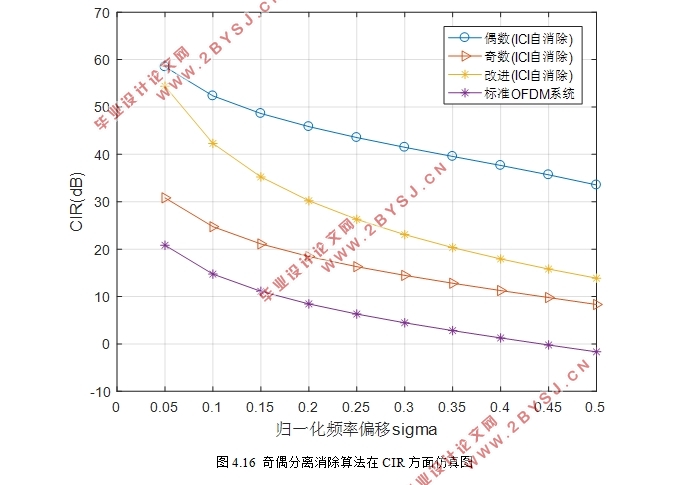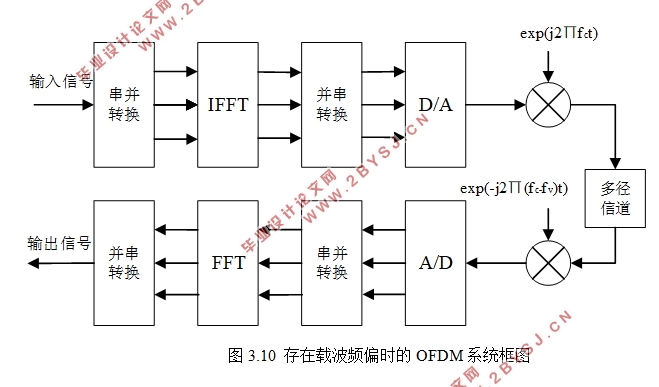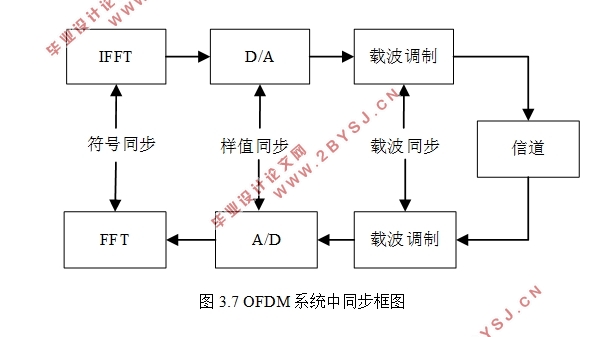基于MATLAB的OFDM系统性能仿真
无需注册登录,支付后按照提示操作即可获取该资料.
基于MATLAB的OFDM系统性能仿真(论文15000字)
摘要:本文介绍OFDM系统的基本原理与实现方法,以及移动多径环境下使用OFDM的优势,详细阐述了OFDM系统中符号间干扰ISI、载波间干扰ICI产生原因以及抑制技术。在研究传统ICI自消除算法基础上,为进一步降低算法复杂度,提出了改进的对称数据取反自消除算法。针对传统ICI自消除算法频谱利用率不高的特点,提出改进的奇偶载波分离ICI自消除算法,最大程度地提高OFDM系统性能。在理论分析的基础上,采用MATLAB仿真,仿真结果显示改进算法能不同程度地消除ICI干扰,提高系统载干比。
关键词:OFDM;ICI自消除;仿真;载干比
Matlab-based OFDM System Performance Simulation
Abstract:This paper introduces the basic principle and implementation method of OFDM system, and the advantages of using OFDM in mobile multipath environment. It elaborates the causes of inter-symbol interference (ISI) and inter-carrier interference (ICI) in OFDM systems and the suppression techniques. Based on the study of the traditional ICI self-cancellation algorithm, in order to further reduce the complexity of the algorithm, an improved symmetric data inversion self-cancellation algorithm is proposed. In view of the low spectrum utilization of the traditional ICI self-cancellation algorithm, an improved ICI self-cancellation algorithm for odd-even carrier separation is proposed to maximize the performance of the OFDM system. Based on the theoretical analysis and using MATLAB simulation, the simulation results show that the improved algorithm can eliminate ICI interference to varying degrees and improve the system carrier-to-interference ratio.
Keywords:OFDM;ICI self-cancellation;simulation;carrier-to-interference ratio



目录
1绪论 1
1.1研究背景与意义 1
1.2 OFDM技术发展现状及ICI抑制技术研究现状 1
1.3论文内容及章节安排 2
2无线信道与OFDM技术原理 2
2.1无线通信信道 2
2.1.1 多径时延扩展产生的衰落效应 3
2.1.2 多普勒频移产生的衰落效应 3
2.1.3 无线信道模型 4
2.2 OFDM技术原理 4
2.2.1 正交性原理 5
2.2.2 OFDM调制与解调 6
2.2.3 OFDM系统框图 7
3 OFDM中ISI、ICI产生的原因及影响 7
3.1 ISI的生成与循环前缀技术 7
3.1.1 ISI的生成 7
3.1.2 循环前缀技术仿真 9
3.2 ICI产生的原因及影响 11
3.2.1同步误差 11
3.2.2 多径衰落 11
3.2.3 多普勒频移 12
3.3 ICI对OFDM系统的影响 13
3.3.1 ICI的数学理论推导 13
3.3.2 ICI对OFDM系统的影响 16
4抑制ICI技术研究 20
4.1 ICI消除算法 20
4.1.1频域均衡 20
4.1.2 时域均衡 20
4.1.3 ICI自抑制算法 20
4.2 ICI自消除算法 21
4.2.1 ICI自消除算法调制原理 21
4.2.2 ICI自消除算法解调原理 21
4.3 多项式编码自消除算法 23
4.4 改进的对称取反ICI自消除算法 25
4.4.1 算法原理 25
4.4.2 仿真分析 27
4.5 改进的奇偶载波分离ICI自消除算法 32
4.5.1 算法原理 32
4.5.2 仿真分析 34
5结论 35
参考文献 36
致谢 38
